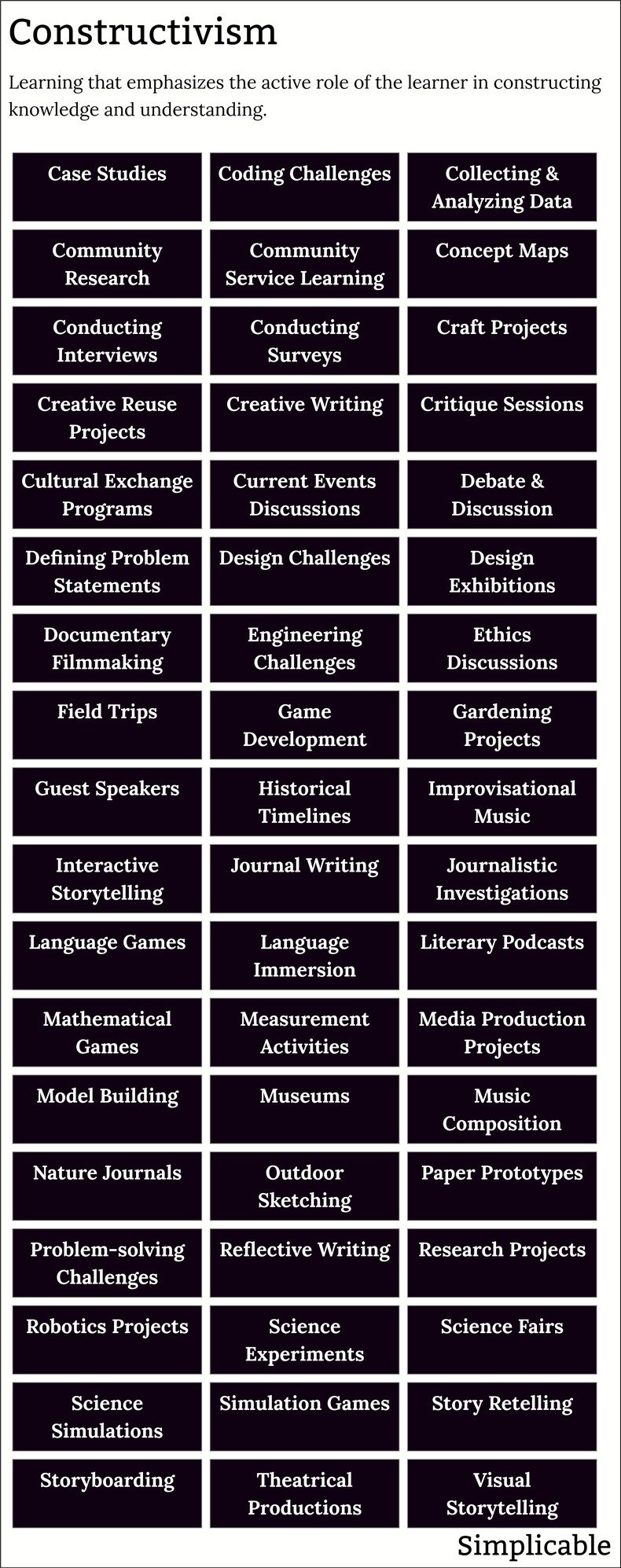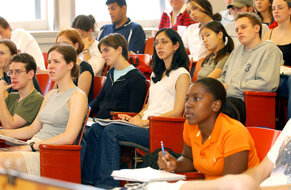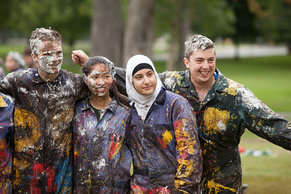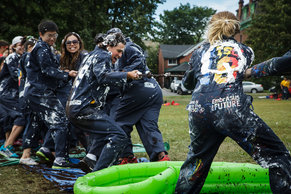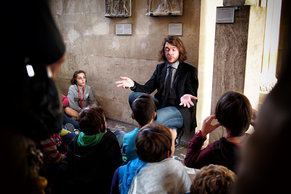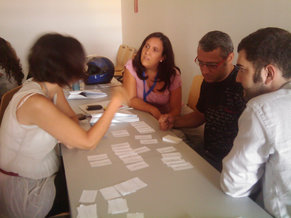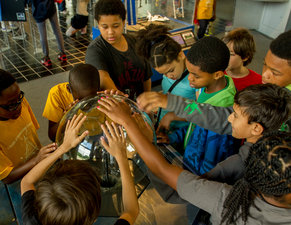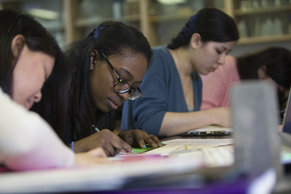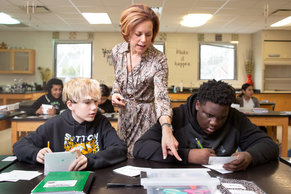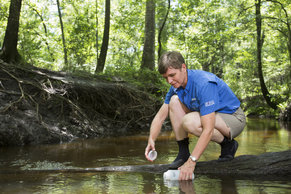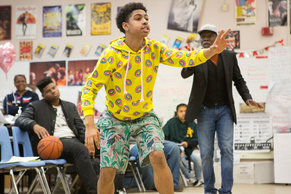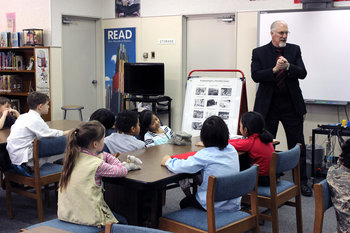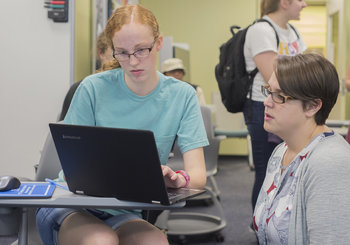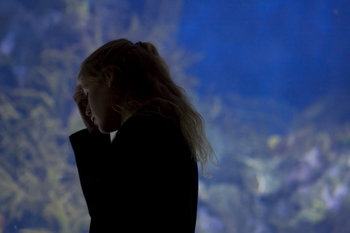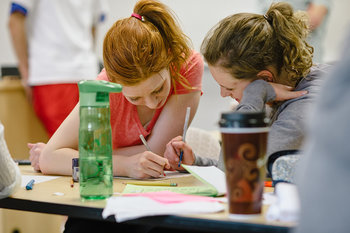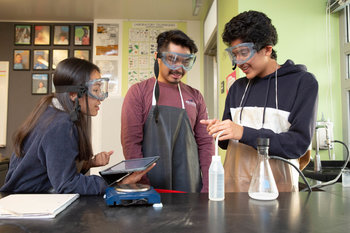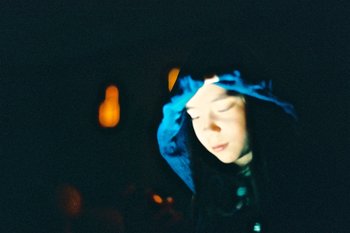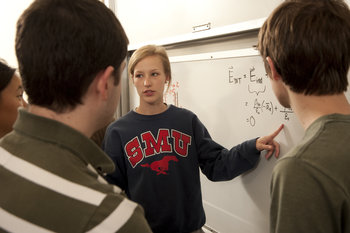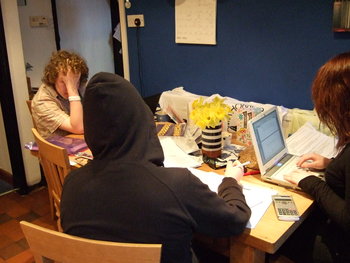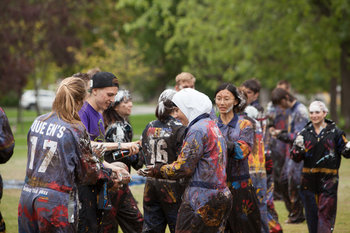Case studies | Character design projects |
Coding challenges | Collecting and analyzing meteorological data |
Community research projects | Community service learning |
Composing questions | Conducting interviews |
Constructing concept maps | Craft projects |
Creating infographics | Creating maps |
Creative reuse projects | Creative writing |
Critique sessions | Cultural exchange programs |
Current events discussions | Dance choreography |
Data analysis projects | Debate & discussion |
Decision making activities | Defining problem statements |
Design challenges | Design exhibitions |
Design of science simulations | Designing and conducting surveys |
Developing decision criteria | Documentary filmmaking |
Documenting historical timelines | Engineering challenges |
Ethics discussions | Field research |
Field trips | Game development projects |
Gardening projects | Guest speakers |
Improvisation music exercises | Industry internships |
Interactive storytelling | Journal writing |
Journalistic investigations | Language exchanges |
Language games | Language immersion |
Literary analysis essays | Literary criticism discussions |
Literary podcasts | Literature circles |
Mathematical games | Measurement activities |
Media production projects | Model building |
Museums | Music composition |
Nature journals | Nature walks |
Outdoor sketching | Paper prototypes |
Problem-solving challenges | Reflective writing |
Research projects | Robotics engineering projects |
Science experiments | Science fairs |
Second language drama productions | Simulation games |
Story retelling | Storyboarding |
Theatrical productions | Visual storytelling with posters |
Advisors
Constructivism calls upon each student to build knowledge through experience such that knowledge can't simply be transferred from the teacher to student. As such, teachers play a facilitation role. For example, a school that has students pursue their own projects with the teacher playing a advisory role.Love of Learning
Students are expected to pursue knowledge in a self-directed fashion. This is based on the idea that people, particularly children, are inquisitive and naturally pursue knowledge. Constructivism avoids doing anything that is likely to damage this love of learning.Assessment
Tests may be avoided or may be based on unique outputs such as an essay. Assessment may be solely based on a teacher's opinion as constructivism completely rejects objectivity such as a "correct answer."Play
A recognition of the value of play typically runs through constructivist school culture.Group Work
In many cases, constructionist teaching methods are heavily based on group work. This tends to benefit students who prefer talking to quiet reflection, reading, analysis and synthesis. Where group work is overdone, students who have potential for concentrated quiet effort may suffer.Discussion
Class discussion or debate. Constructionism allows students to challenge all ideas including those put forward by teachers and learning materials.Leadership
Groupings may be mixed-age and older children may be given a leadership role. For example, older children may play a role in leading a field trip.Experimentation
Running experiments to acquire original knowledge. For example, a student who tests different algorithms for the autonomous movement of a small robot.Research
Research projects whereby students collect knowledge from sources and apply skills such as critical analysis and composition.Learning by Teaching
Students are asked to share the results of their projects, research and initiatives with others such that they learn by teaching.Problem Solving
The development of solutions to open-ended problems. This can be contrasted with traditional education that is mostly based on close-ended problems with a known solution. For example, developing an algorithm for an automated watering system for plants as opposed to an algorithm for sorting a list that has a known optimal solution.Field Trips
As constructivism views learning as a process of experience, field trips may be viewed as a core learning activity.Media
The consumption and production of media such as film.Art
Creative exercises based on the principle of art for art's sake.Design
Solving problems with design and design thinking. For example, redesigning a shelve to solve a problem of clutter in a classroom.Postmodernism
Constructionism and its rejection of objective reality is a defining characteristic of postmodernism. This is a broad academic trend that has had great influence over the social sciences since the 1960s. Science, technology, engineering and mathematics are less influenced by postmodernism because objective reality is important to these fields. For example, if you're designing an aircraft it is important to calculate the objectively correct answer to how much thrust is required in a particular scenario such that the constructionist idea that there are "no correct answers" is useless or dangerous.Overview
Constructivism is based on active learning and inquiry whereby learners explore topics and build on existing knowledge and experiences. This is typically open-ended and self-directed whereby instructors provide structure but each learner decides how to engage with topics.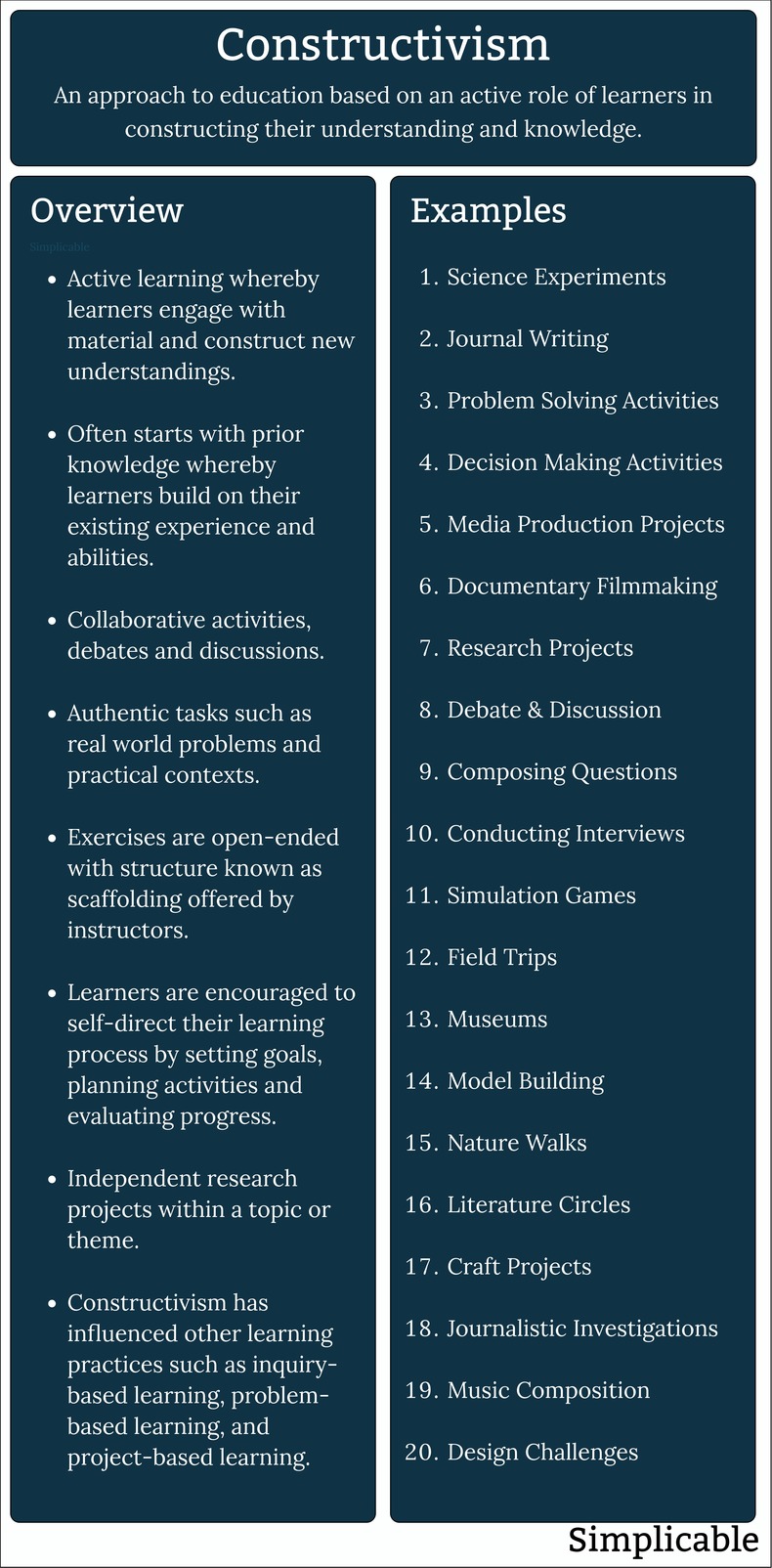
Summary
Constructivism is an approach to education that seeks to construct knowledge through experience.